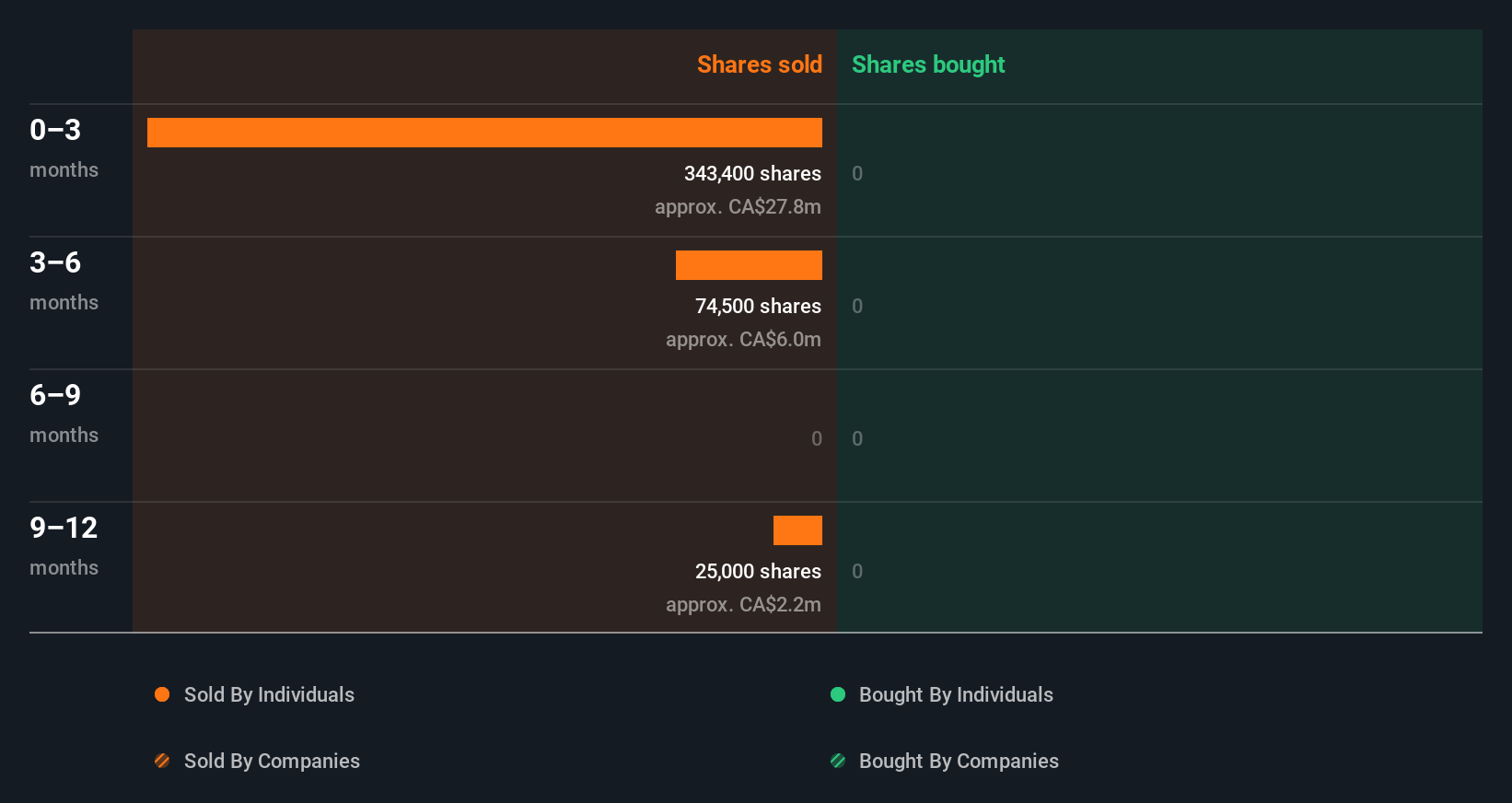We wouldn't blame Brookfield Corporation (TSE:BN) shareholders if they were a little worried about the fact that Brian Lawson, the Vice Chairman recently netted about CA$9.9m selling shares at an average price of CA$97.53. That sale reduced their total holding by 10% which is hardly insignificant, but far from the worst we've seen.
Brookfield Insider Transactions Over The Last Year
Notably, that recent sale by Vice Chairman Brian Lawson was not the only time they sold Brookfield shares this year. Earlier in the year, they fetched CA$83.88 per share in a -CA$11m sale. That means that an insider was selling shares at slightly below the current price (CA$99.07). As a general rule we consider it to be discouraging when insiders are selling below the current price, because it suggests they were happy with a lower valuation. While insider selling is not a positive sign, we can't be sure if it does mean insiders think the shares are fully valued, so it's only a weak sign. This single sale was just 0.9% of Brian Lawson's stake.
Brookfield insiders didn't buy any shares over the last year. The chart below shows insider transactions (by companies and individuals) over the last year. If you want to know exactly who sold, for how much, and when, simply click on the graph below!
Check out our latest analysis for Brookfield

If you are like me, then you will not want to miss this free list of small cap stocks that are not only being bought by insiders but also have attractive valuations.
Insider Ownership
Another way to test the alignment between the leaders of a company and other shareholders is to look at how many shares they own. A high insider ownership often makes company leadership more mindful of shareholder interests. Brookfield insiders own 10% of the company, currently worth about CA$16b based on the recent share price. Most shareholders would be happy to see this sort of insider ownership, since it suggests that management incentives are well aligned with other shareholders.
What Might The Insider Transactions At Brookfield Tell Us?
An insider sold Brookfield shares recently, but they didn't buy any. Looking to the last twelve months, our data doesn't show any insider buying. While insiders do own a lot of shares in the company (which is good), our analysis of their transactions doesn't make us feel confident about the company. While it's good to be aware of what's going on with the insider's ownership and transactions, we make sure to also consider what risks are facing a stock before making any investment decision. When we did our research, we found 3 warning signs for Brookfield (2 shouldn't be ignored!) that we believe deserve your full attention.
Of course, you might find a fantastic investment by looking elsewhere. So take a peek at this free list of interesting companies.
For the purposes of this article, insiders are those individuals who report their transactions to the relevant regulatory body. We currently account for open market transactions and private dispositions of direct interests only, but not derivative transactions or indirect interests.
Valuation is complex, but we're here to simplify it.
Discover if Brookfield might be undervalued or overvalued with our detailed analysis, featuring fair value estimates, potential risks, dividends, insider trades, and its financial condition.
Access Free AnalysisHave feedback on this article? Concerned about the content? Get in touch with us directly. Alternatively, email editorial-team (at) simplywallst.com.
This article by Simply Wall St is general in nature. We provide commentary based on historical data and analyst forecasts only using an unbiased methodology and our articles are not intended to be financial advice. It does not constitute a recommendation to buy or sell any stock, and does not take account of your objectives, or your financial situation. We aim to bring you long-term focused analysis driven by fundamental data. Note that our analysis may not factor in the latest price-sensitive company announcements or qualitative material. Simply Wall St has no position in any stocks mentioned.
About TSX:BN
Brookfield
An alternative asset manager and real estate investment manager firm focuses on real estate, renewable power, infrastructure and venture capital and private equity assets.
Fair value with low risk.
Similar Companies
Market Insights
Community Narratives




